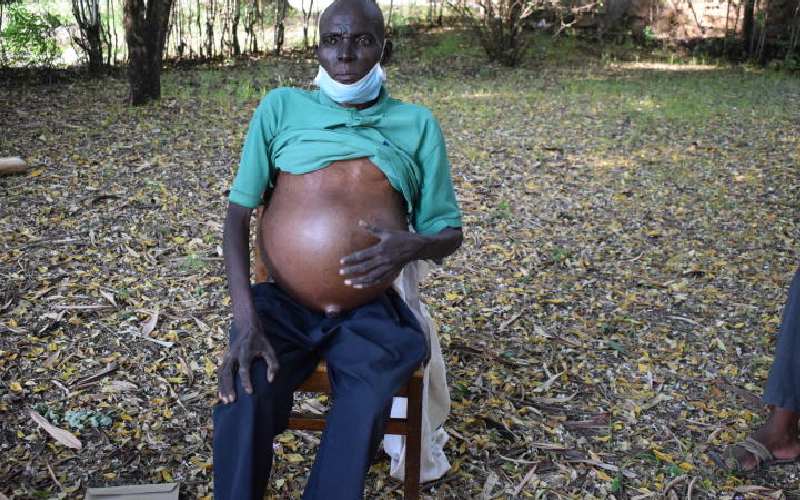×
The Standard e-Paper
Stay Informed, Even Offline

Harison Olala, a 40-year-old man who has suffered psychological torture since he was infected by ascites disease more than two years.[James Omoro,Standard]
You could be sick, feeling like dropping dead any minute, but when you consult a doctor…shock on you! all the tests return negative results. The doctor ‘cannot see’ your illness.